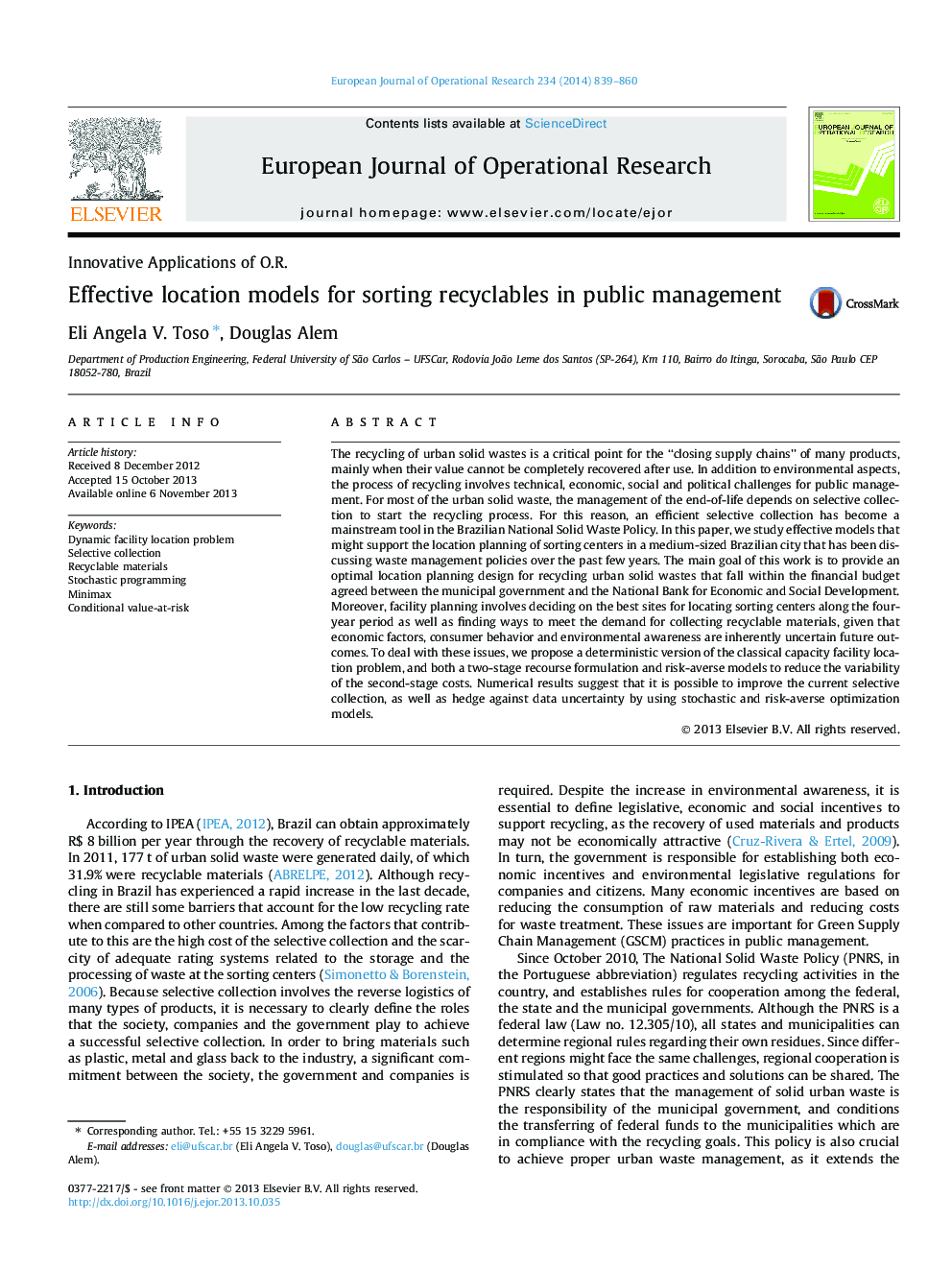| کد مقاله | کد نشریه | سال انتشار | مقاله انگلیسی | نسخه تمام متن |
|---|---|---|---|---|
| 478218 | 1446033 | 2014 | 22 صفحه PDF | دانلود رایگان |
• New models to the facility location problem in public management settings.
• Stochastic model considers costs, demands and capacities uncertainty outcomes.
• Risk-averse model deals with the variability of the second-stage costs.
• Models were analyzed from the public management viewpoint under a real data setting.
• Considerable improvement in the actual selective collection of the city.
The recycling of urban solid wastes is a critical point for the “closing supply chains” of many products, mainly when their value cannot be completely recovered after use. In addition to environmental aspects, the process of recycling involves technical, economic, social and political challenges for public management. For most of the urban solid waste, the management of the end-of-life depends on selective collection to start the recycling process. For this reason, an efficient selective collection has become a mainstream tool in the Brazilian National Solid Waste Policy. In this paper, we study effective models that might support the location planning of sorting centers in a medium-sized Brazilian city that has been discussing waste management policies over the past few years. The main goal of this work is to provide an optimal location planning design for recycling urban solid wastes that fall within the financial budget agreed between the municipal government and the National Bank for Economic and Social Development. Moreover, facility planning involves deciding on the best sites for locating sorting centers along the four-year period as well as finding ways to meet the demand for collecting recyclable materials, given that economic factors, consumer behavior and environmental awareness are inherently uncertain future outcomes. To deal with these issues, we propose a deterministic version of the classical capacity facility location problem, and both a two-stage recourse formulation and risk-averse models to reduce the variability of the second-stage costs. Numerical results suggest that it is possible to improve the current selective collection, as well as hedge against data uncertainty by using stochastic and risk-averse optimization models.
Journal: European Journal of Operational Research - Volume 234, Issue 3, 1 May 2014, Pages 839–860
